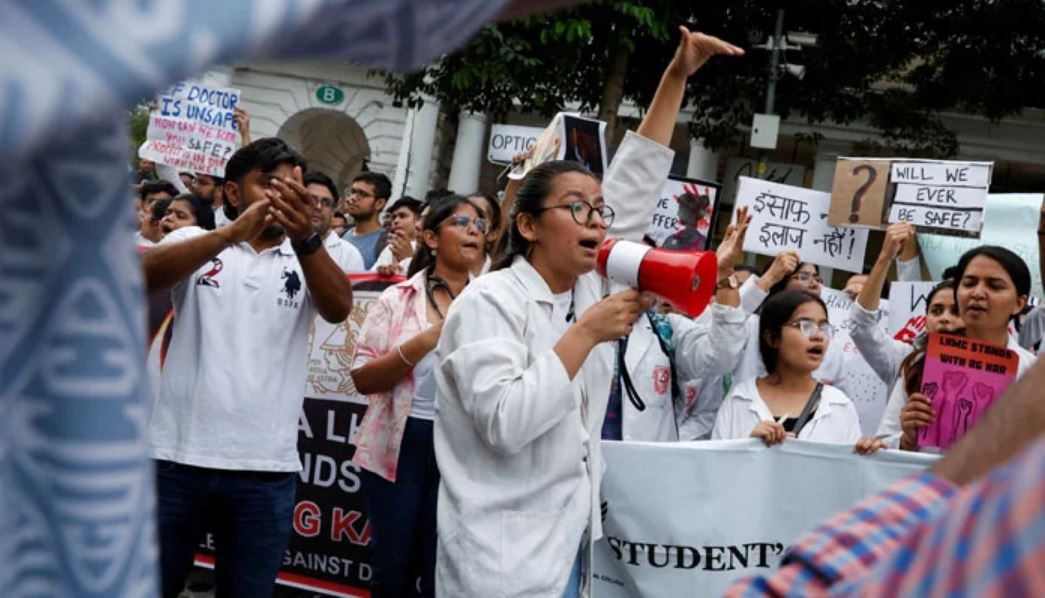DM Monitoring
NEW DELHI: Thousands of Indian junior doctors on Monday refused to end protests over the rape and murder of a fellow medic, disrupting hospital services nearly a week since they launched a nation-wide action demanding safer workplace and swift criminal action.
Doctors across the country have held protests and declined to see non-emergency patients following the August 9 killing of the 31-year-old medic, who police say was raped and murdered at a hospital in the eastern city of Kolkata where she was a trainee.
A police volunteer has been arrested and charged with the crime.
Women activists say the incident has highlighted how women in India continue to suffer from sexual violence despite tougher laws brought in after the 2012 gang-rape and murder of a 23-year-old student on a moving bus in New Delhi.
The government has urged doctors to return to duty while it sets up a committee to suggest measures to improve protection for healthcare professionals.
“Our indefinite cease-work and sit-in will continue till our demands are met,” said Dr Aniket Mahata, a spokesperson for protesting junior doctors at the RG Kar Medical College and Hospital, where the incident happened.
In solidarity with the doctors, thousands of supporters of West Bengal state’s two biggest soccer clubs marched on the streets of Kolkata on Sunday evening with chants of “We want justice”.
Groups representing junior doctors in neighbouring Odisha state, the capital New Delhi, and in the western state of Gujarat have also said their protests will continue.
Earlier, Hospitals and clinics across India turned away patients except for emergency cases on Saturday as medical professionals staged a 24-hour shutdown in protest over the rape and murder of a doctor this month in the eastern city of Kolkata.
More than one million doctors were expected to join the strike, paralysing medical services across the world’s most populous nation. Hospitals said faculty staff from medical colleges had been pressed into service for emergency cases.
The government, in a statement issued on Saturday after a meeting with representatives of medical associations, urged doctors to return to duties in the public interest. The government would set up a committee to suggest measures to improve protection for healthcare professionals, it said.
In response, the Indian Medical Association said it was studying the government offer, but it did not call off the strike, which was due to end at 6 am (0030 GMT) on Sunday.
The crime has triggered nationwide protests among medical workers and a public outpouring of anger over violence against women reminiscent of what followed the notorious gang rape and murder of a 23-year-old student on a bus in New Delhi in 2012.
The strike halted access to elective medical procedures and out-patient consultations, according to the Indian Medical Association (IMA).
There was a heavy police presence outside Kolkata’s RG Kar Medical College where the woman was killed, while the hospital premises were deserted, according to the ANI news agency.
Mamata Banerjee, the chief minister of West Bengal, which includes Kolkata, has backed the protests across the state. Her government announced on Saturday evening measures to improve security for women working night shifts, including designated rest rooms and safe zones monitored by cameras.
It also asked private institutions to consider measures such as night patrols to make the working environment more secure for women.
India’s Central Bureau of Investigation has so far detained one suspect in the case.
The CBI summoned a number of medical students from the college as part of its investigation, according to a police source in Kolkata, who said the agency also questioned the principal of the hospital on Friday.



